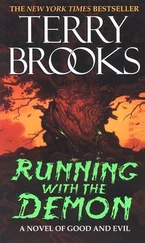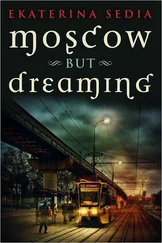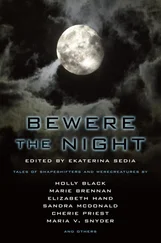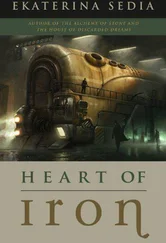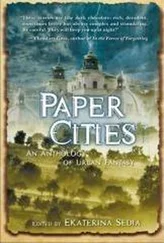Fortified by coffee and cognac, as the Edvard Grieg bore them down the silent fjord, they relaxed at last in the bar. Eloise returned to her tale.
“Nielsen was a servant in the von Merkens household during the War. A lot of what he said I couldn’t quite get—he spoke in a curious dialect, and it was all very rambling. I’d like to think what he said was the ravings of senility, or alcohol. But there were too many plausible details. Anders von Merkens, as I’ve long suspected, was a collaborator. Quisling and other leading Nazis were frequent house guests at Rødal, where Sophia was famous for hosting lavish parties. One night there was a terrible massacre, exactly as Akerø said.”
“What, here at Rødal?”
“Somewhere in those woods. Nearby, there’s a track into the mountains that leads eventually to a remote stretch of the Swedish frontier. The Milorg —the Resistance—were helping a party of Bergen Jews, mainly women and children, to escape to Sweden. But they were found out about it. They were rounded up and, well, they put them to death.”
Eloise hesitated, as if hesitating to go on.
“It was worse than a massacre,” she continued. “It was some kind of blood sacrifice . . . The victims were strung from the trees, their throats cut and bled dry . . . Sophia von Merkens, if Nielsen is to be believed, drank of the blood . . . It was June 1942, second anniversary of the German invasion—there was a great banquet in full sway. There was a Swede, a businessman, a brother of Sophia’s. An important man, Nielsen thought, from the way he was treated, the one behind it all . . . and there was more . . . ”
She regarded her Rémy-Martin. “I’ve suddenly gone off this.” White-faced, she left the bar. Thoughtfully, Fraser pushed his own glass away. Other guests looked askance.
By the time they reached Oslo Eloise had recovered her insouciance; and her ardour for research had certainly not abated. Fraser was not at all sure that digging over war crimes was good for anyone, and he told her so.
“You said the authorities weren’t keen on your inquiries. I’d keep out of it. You never know what might happen! I’ve told you, it’s a sensitive topic.”
“I can’t leave it now. There’s a file in the Archives I must get back to.”
“What file? What about it?”
“Oh, it’s a bit complicated. Remember I told you I’d discovered a misplaced file? I didn’t have time to go through it properly before the university froze me out. You see, there’s a correspondence file in the Ministry of Finance, its economic intelligence section, and it’s to do with Quisling and the Nazis, but it’s marked as a top secret file from the Ministry of Internal Security—all their records were destroyed at the end of the War, so it’s priceless . . . ”
“So?”
“Well,” she sighed. “It’s this name Lindhorst . . . it’s bothered me from the beginning . . . it rings a bell . . . I think I may have seen the name somewhere in that file.”
“I thought you said it was just like MacDonald?” he said wearily.
“I know,” she said, “But the more I thought about it . . . And I think Nielsen mentioned the name too—it was all a bit garbled . . . There’s some funny connection between the Lindhorsts and the von Merkens.”
“Well, we know that,” said Fraser. “A historical one. The portraits . . . And the graves.”
“Graves?” Eloise eyed him curiously.
“Didn’t I mention it?—we were too busy talking about Nielsen!”
Fraser summarised his findings.
Eloise raised her eyebrows when he told her that Sophia von Merkens was a Lindhorst. “Curiouser and curiouser!”
“It’s just a case of persistent intermarriage, that’s all!” he said, shrugging. “Common amongst the upper classes . . . Listen, I’m not really sure where all this is going?”
She frowned. “Nor am I. But I’ve got to go back to that file . . . Look, you’ll enjoy the day exploring Oslo! Enjoy it while it lasts!”
Fraser was, in truth, not in the mood for sightseeing; he felt rather under the weather. It was inflamed where the bird had pecked; perhaps he should have sought first aid. And his nerves were bad; for reasons he could not explain he felt anxious about Eloise, though she was patently capable of looking after herself. He passed a depressing, desultory day, flitting from one attraction to another, unable to focus upon any, even the splendid municipal gardens. The final hour he whiled away in a bar, sipping an outrageously priced lager, awaiting five o’clock, when he had arranged to meet his daughter outside the National Archives Office.
A commotion of some kind surrounded the elegant nineteenth century building, set back in leafy grounds. Traffic was being diverted, blue lights flashing, the sound of police klaxons. The oscillating wail of an approaching ambulance charged the crisis atmosphere. Fraser’s pulse quickened. A large crowd had gathered outside. Yellow-jacketed police bunched around the shrubberies in front of the building. His way was barred by a burly officer, shooing voyeurs away.
“An English girl, some kind of attack,” declared a large American woman, catching his mute entreaties. “I thought it was safe to walk the streets here! I’m from Atlantic City!”
Fraser moved too quickly for the officer, who shouted after him as he ran to the rescue scrum in the bushes.
Eloise was lying in a gathering pool of blood with half her face missing.
Once his identity had been established, the police began asking questions. The ambulance had arrived too late to be of use, if it ever could have been. A doctor at the morgue assured him the severed jugular would have been sufficient to kill outright, quite apart from other ravages; it must be the work of a maniac, someone gone berserk. Nevertheless, Fraser’s every movement that day, every detail of their trip, were checked and double-checked; and the detectives were very inquisitive about Eloise’s purpose in the Archives. A silver-haired, distinguished-looking man in his sixties was introduced to him: Dr. Olaf Müller, Curator of the National Archives. He had questions too.
“Your daughter, Mr. Campbell, it appears, stole something from the Archives, though if this has anything to do with her killing, we are not sure.”
A senior officer, of pale blue eyes and unsmiling face, continued to stare right at Fraser, a radar ready to detect every wayward blip.
“Do you know anything about your daughter’s work, Mr. Campbell?” continued Müller, “She was a professor once at Kristiansand? . . . For example, does this document have any sense to you?” He extracted from a briefcase several sheets of mottled paper printed in old-fashioned type.
Fraser stared blankly at the Norwegian text. The thick type swirled before his eyes like arcane hieroglyphics.
“Sorry, Mr. Campbell, I will try to summarise . . .
“These papers were found concealed on your daughter’s body at the scene. They were clearly hidden to get past our rather poor security . . . This document, it is from 1942, the War? . . . It has the name of a big Swedish arms manufacturer . . . The Swedes, you know, were neutral in the War? This was, what is the phrase—? A double-edged sword! This firm, you see, Mr. Campbell, it traded weapons to the Nazis . . . and, I’m afraid, much, much worse . . . ”
He tapped the papers before him.
“The company,” he went on, “it still exists today, it is multinational now, very famous, though under a different name . . . and it is not good news, this document, for their reputation . . . for international relations . . . or some politicians in Norway and Sweden . . . So we wonder what your daughter was doing, Mr. Campbell? Maybe working for a newspaper?”
Читать дальше

